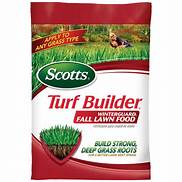Is Scotts WinterGuard Safe for Pets?
Scotts WinterGuard is a deicing product that is commonly used to melt snow and ice from driveways, sidewalks, and other surfaces. It is a blend of sodium chloride (rock salt) and calcium chloride, two chemicals that are known to be harmful to pets if ingested.

What are the risks of Scotts WinterGuard to pets?
The main risks of Scotts WinterGuard to pets are:
1. Gastrointestinal upset: If a pet ingests Scotts WinterGuard, it can cause gastrointestinal upset, including vomiting, diarrhea, and abdominal pain. In some cases, it can also lead to dehydration.
2. Skin irritation: Scotts WinterGuard can also cause skin irritation, including redness, itching, and burning. If a pet comes into contact with Scotts WinterGuard, it is important to rinse the area with water immediately.
3. Salt poisoning: In severe cases, Scotts WinterGuard can cause salt poisoning. This can occur if a pet ingests a large amount of the product in a short period of time. Symptoms of salt poisoning include vomiting, diarrhea, seizures, and coma.
How can I keep my pet safe from Scotts WinterGuard?
There are a number of things you can do to keep your pet safe from Scotts WinterGuard, including:
1. Keep Scotts WinterGuard out of reach of your pet: Store Scotts WinterGuard in a secure location where your pet cannot access it. This includes both the product itself and any empty containers.
2. Rinse your pet's paws after walking on surfaces treated with Scotts WinterGuard: If your pet walks on a surface that has been treated with Scotts WinterGuard, rinse their paws with water immediately. This will help to remove any residual product that may be on their paws.
3. Contact your veterinarian immediately if your pet ingests Scotts WinterGuard: If your pet ingests Scotts WinterGuard, contact your veterinarian immediately. The sooner your pet receives treatment, the better the chances of a full recovery.
What are some alternatives to Scotts WinterGuard that are safe for pets?
There are a number of pet-safe alternatives to Scotts WinterGuard that you can use to melt snow and ice from your driveway, sidewalk, and other surfaces. These include:
1. Sand: Sand is a good option for traction on icy surfaces. It is not harmful to pets if ingested, but it can be messy.
2. Ice melt made with calcium magnesium acetate: This type of ice melt is less harmful to pets than products that contain sodium chloride or calcium chloride. However, it is important to keep it out of reach of your pet, as it can still cause gastrointestinal upset if ingested.
3. Pet-safe ice melt products: There are a number of pet-safe ice melt products available on the market. These products typically contain ingredients that are not harmful to pets, such as urea and potassium chloride.
When choosing a pet-safe ice melt product, it is important to read the label carefully to make sure that it is safe for your pet. You should also avoid using any products that contain salt, as salt can be harmful to pets.
Declaration: All article resources on this website, unless otherwise specified or labeled, are collected from online resources. If the content on this website infringes on the legitimate rights and interests of the original author, you can contact this website to delete it.



